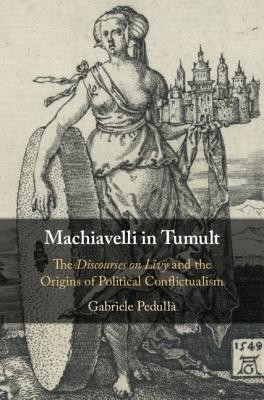
- We will send in 10–14 business days.
- Author: Gabriele Pedulla
- Publisher: Cambridge University Press
- ISBN-10: 1107177278
- ISBN-13: 9781107177277
- Format: 16.4 x 23.4 x 2.3 cm, kieti viršeliai
- Language: English
- SAVE -10% with code: EXTRA
Reviews
Description
Among the theses that for centuries have ensured Niccolò Machiavelli an ambiguous fame, a special place goes to his extremely positive opinion of social conflicts, and, more in particular, to the claim that in ancient Rome 'the disunion between the plebs and the Roman senate made that republic free and powerful' (Discourses on Livy I.4). Contrary to a long tradition that had always highly valued civic concord, Machiavelli thought that - at least under certain conditions - internecine discord could be a source of strength and not of weakness, and built upon this daring proposition an original vision of political order. Machiavelli in Tumult (originally published in Italian in 2011) is the first book-length study entirely devoted to analyzing this idea, its ancient roots (never before identified), its enduring (but often invisible) influence up until the American and the French Revolution (and beyond), and its relevance for contemporary political theory.
EXTRA 10 % discount with code: EXTRA
The promotion ends in 23d.17:38:55
The discount code is valid when purchasing from 10 €. Discounts do not stack.
- Author: Gabriele Pedulla
- Publisher: Cambridge University Press
- ISBN-10: 1107177278
- ISBN-13: 9781107177277
- Format: 16.4 x 23.4 x 2.3 cm, kieti viršeliai
- Language: English English
Among the theses that for centuries have ensured Niccolò Machiavelli an ambiguous fame, a special place goes to his extremely positive opinion of social conflicts, and, more in particular, to the claim that in ancient Rome 'the disunion between the plebs and the Roman senate made that republic free and powerful' (Discourses on Livy I.4). Contrary to a long tradition that had always highly valued civic concord, Machiavelli thought that - at least under certain conditions - internecine discord could be a source of strength and not of weakness, and built upon this daring proposition an original vision of political order. Machiavelli in Tumult (originally published in Italian in 2011) is the first book-length study entirely devoted to analyzing this idea, its ancient roots (never before identified), its enduring (but often invisible) influence up until the American and the French Revolution (and beyond), and its relevance for contemporary political theory.


Reviews